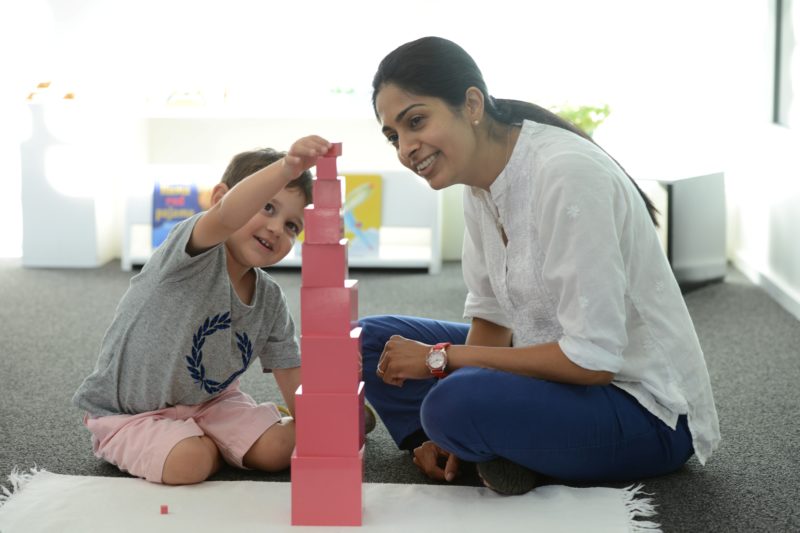Today we celebrate the birthday of Maria Montessori, born on August 31, 1870—a woman whose ideas forever changed how we understand children and their capacity to learn. At The Children’s School, we owe her an enormous debt. Her years of observation, research, and experimentation revealed truths about children that feel both timeless and startlingly fresh even now.
Montessori saw what many in her time could not: that children are natural learners, driven by curiosity, eager for independence, and capable of extraordinary focus when given the right conditions. She reminded us, “Free the child’s potential, and you will transform him into the world.”
Her insights—linking movement and cognition, honoring choice, emphasizing active learning, and recognizing the role of a thoughtfully ordered environment—are ideas that continue to guide our own classrooms.
When she opened the Casa dei Bambini in 1907, in the San Lorenzo district of Rome, Montessori was not seeking fame—she was seeking answers. Could her methods nurture the potential of children who had been overlooked and underestimated? The answer was a resounding yes. What began in a ground-floor tenement classroom grew into a philosophy and practice that spread across continents. Today, more than 100,000 schools bear her influence.
At The Children’s School, we see Montessori’s principles come alive in daily practice:
- Order and calm. A prepared environment—where everything has its place—fosters independence and concentration. Montessori intuited what research later confirmed: external order helps children develop inner order.
- Respecting a child’s interests. Montessori believed that interests are the engine of learning. At TCS, we “merchandise” materials so that they call out to children, inviting them to explore and discover.
- The gift of choice. Children thrive when they can follow their curiosity. Montessori observed that, given freedom, children choose wisely and often immerse themselves in extended periods of concentration.
- Movement as learning. Montessori insisted that movement and cognition are inseparable. In our classrooms, children move freely—indoors and out—using their hands, bodies, and minds together.
- Learning in context. She knew that learning must be rooted in meaningful work. Our young writers, for example, become “real authors” as they create and publish their own books.
- Learning with and from peers. Montessori pioneered mixed-age classrooms, recognizing that children teach and inspire one another in profound ways.
- Respectful teacher-child relationships. She believed that respect is the foundation of all teaching. At TCS, we affirm this daily, with language that honors children and their efforts.
- Intrinsic motivation. Montessori rejected gold stars and stickers. True motivation, she believed, comes from within. Instead, we celebrate children with affirmations such as, “You worked so hard to balance that tower.”
Over a century later, Montessori’s vision feels as relevant as ever. She demonstrated that children flourish when we trust them, prepare their environments with care, and approach them with deep respect. At The Children’s School, her spirit is woven into the fabric of our days.
On this anniversary of her birth, we pause to honor not just the remarkable educator, but also the enduring gift she left to children everywhere: the belief that they are capable, curious, and full of potential. Or, in her own words, “The child is both a hope and a promise for mankind.”
Maureen
